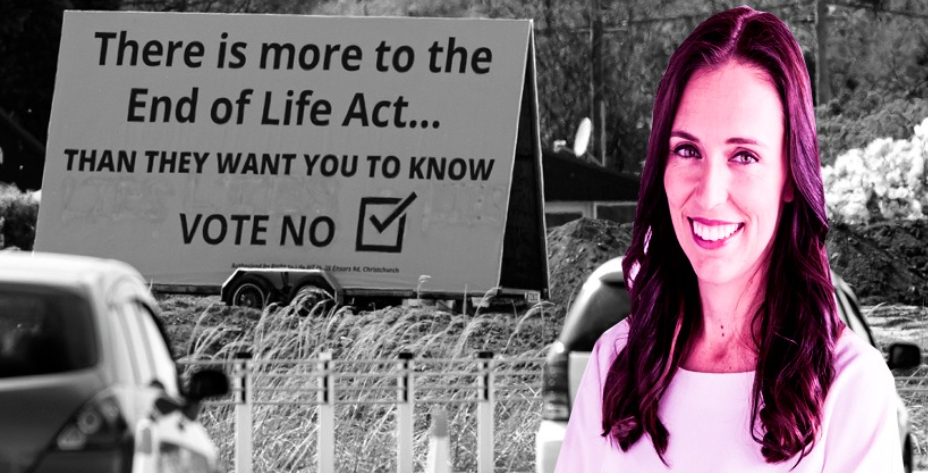
A recent post on Plebbit’s r/newzealand subforum involved a Boomer crying about having to pay a farmhand $28 per hour. The Boomer seemed surprised that “a young guy in his late twenties” wasn’t grateful for the opportunity. Simple economic psychology explains why – and everyone younger than Boomers understands it.
If said farmhand works 40 hours a week for 50 weeks a year, he’ll earn a gross pay of $56,000. After income tax, that works out to $45,323. After rent is sucked out of him, he’s left with the princely sum of $37,003. Let’s say that he’s capable of living as cheaply as the average beneficiary, on about $350 per week or so. That leaves him with $18,803 in savings per year to go towards owning a house one day.
The average New Zealand house price is now $893,639. This means it would take our farmhand 47.53 years to save up enough money. Assuming he’s now 29, he should have enough money by roughly age 77. And this is assuming that house prices don’t rise in this time.
The obvious objection here is that our farmhand would get a mortgage. So let’s do the maths on that.
The WestPac mortgage calculator suggests that a person on a wage of $56,000 p.a. should be able to afford a mortgage of $249,360. If they already had a 20% deposit saved, they could potentially buy a house worth $311,700.
A TradeMe Property search reveals that there is almost nowhere that you can buy a house in New Zealand for $311,700. For reference, even leasehold land in Hokitika, a town more remote than 99% of New Zealand, is going for $249,000 right now. Almost everything else at that price is a bare section.
So with a 30-year mortgage, our farmhand could potentially aim to own enough land to pitch a tent on by the time he was 60. Finding a fertile woman as a 60-year old man living in a tent would no doubt prove an absurd challenge.
Buying an actual home is simply impossible on $28/hour. Homeownership and raising a family are unachievable dreams on such a wage. Ergo, it isn’t a fair wage, it’s exploitation. Which raises an obvious question: what would be a fair wage for a full-time worker today?
The first assumption is that the most accurate measure of a fair wage is the extent to which it provides for a decent (not luxurious) lifestyle, and this primarily means homeownership. People are not happy making high wages if all they can afford is televisions and takeaways and the money doesn’t stretch to establishing a home.
The second assumption is that the Boomers themselves got a fair deal. Thus, I will assume that the housing situation in 1992 (when the average Boomer would have been about 36-37) is representative of the Boomer life experience. This certainly meant homeownership; for many Boomers, it meant owning so many homes that they could live off the rents of the young for life.
In 1992 the average New Zealand house price was $109,000. Also in 1992, the average hourly wage was about $15. This works out to 7,266 hours of saved labour to own the average house.
If the average house price now is $893,639, we can divide that by 7,266 hours of labour, and then multiply the resulting hourly wage by 2,000 hours in the year, to find the annual wage that would give a late-20s farmhand today the same chance of owning a home that a late-20s Boomer had in 1992 (this is the youngest possible Boomer, and all older ones will have had an even easier time).
Therefore, a fair wage today, per annum, would be about $245,978. Only a wage of no less than $245,978 would allow today’s worker to own a home with the same ease that the Boomers enjoyed. Any less than that, and today’s worker is forced to work hours that Boomers were not forced to, in order to enjoy the same standard of living.
Note that this figure implies absolutely zero standard of living increase from all the technological advancement of the last 31 years. Let’s just assume (for the sake of humility, perhaps) that the corporates deserve all of the profits from all of that advancement, which includes the advent of the personal computer, the Internet, the cellphone etc. Let’s assume that our farmhand deserves a zero share of this bounty.
That still leaves us with a wage of $245,978 (some $123 per hour) minimum for today’s farmhand to have the same standard of living as a farmhand in 1992. Such a wage is necessary if he wants to buy today’s $893,639 average house with 7,266 hours of saved labour, as the average Boomer was privileged enough to do.
Of course, the average farmer or business owner would rather go out of business than pay a wage anywhere near that. Which leaves many people asking honestly where the New Zealand economy can possibly go from here.
*
For more of VJM’s ideas, see his work on other platforms! https://linktr.ee/vjmpublishing
For even more of VJM’s ideas, buy one of his books! https://www.amazon.com/author/vincemcleod
*
If you enjoyed reading this essay/article, you can get a compilation of the Best VJMP Essays and Articles from 2021 from Amazon as a Kindle ebook or paperback. Compilations of the Best VJMP Essays and Articles of 2020, the Best VJMP Essays and Articles of 2019, the Best VJMP Essays and Articles of 2018 and the Best VJMP Essays and Articles of 2017 are also available.
*
If you would like to support our work in other ways, subscribe to our SubscribeStar fund, or make a donation to our Paypal! Even better, buy any one of our books!



